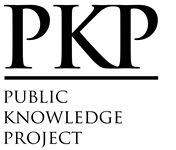Cultural Understanding and the Impact of Domestic Violence Against Children in Uganda Communities: A Case Study of Child Maltreatment in Busoga and Acholi Regions
Abstract
Child maltreatment is a grave concern affecting societies worldwide, with its impact extending across generations. This study delves into the intricate interplay of cultural, socio-economic, and institutional factors contributing to child maltreatment in Uganda's Busoga and Acholi regions. Guided by the case study methodology, the research examines the prevalence of child maltreatment, the influence of cultural norms and practices, the roles of cultural and religious leaders, and the challenges within the child protection system.
The findings reveal alarming statistics, highlighting the pervasiveness of child maltreatment, including corporal punishment in schools, child defilement, sexual violence, and child labor. The socio-economic context, particularly in northern Uganda, amplifies children's vulnerabilities due to poverty, disease, conflict, and the prevalence of orphans. Cultural norms and traditions significantly shape disciplinary practices, emphasizing community involvement in child upbringing. Local cultural and religious leaders influence child discipline structures and advocate for children's rights. However, despite theoretical approaches to child protection, practical implementation lags, and identifying perpetrators remains challenging. Poor documentation and resource constraints hinder effective responses to child maltreatment, leading to a resource allocation disparity between urban and rural areas.
The implications of child maltreatment are profound, affecting children's physical, psychological, and emotional well-being, potentially leading to long-term consequences. The study recommends collaborative efforts involving government bodies, NGOs, cultural and religious leaders, and communities. Culturally sensitive interventions, practical implementation of child protection measures, and equitable resource allocation are vital components of a holistic approach.
Full Text:
PDFDOI: https://doi.org/10.5296/jsss.v10i2.21413
Refbacks
- There are currently no refbacks.
Copyright (c) 2023 Timonthy Kigonya, Imaobong Olsson

This work is licensed under a Creative Commons Attribution 4.0 International License.
Journal of Social Science Studies ISSN 2329-9150
Copyright © Macrothink Institute
To make sure that you can receive messages from us, please add the 'macrothink.org' domain to your e-mail 'safe list'. If you do not receive e-mail in your 'inbox', check your 'bulk mail' or 'junk mail' folders. If you have any questions, please contact: jsss@macrothink.org
-----------------------------------------------------------------------------
